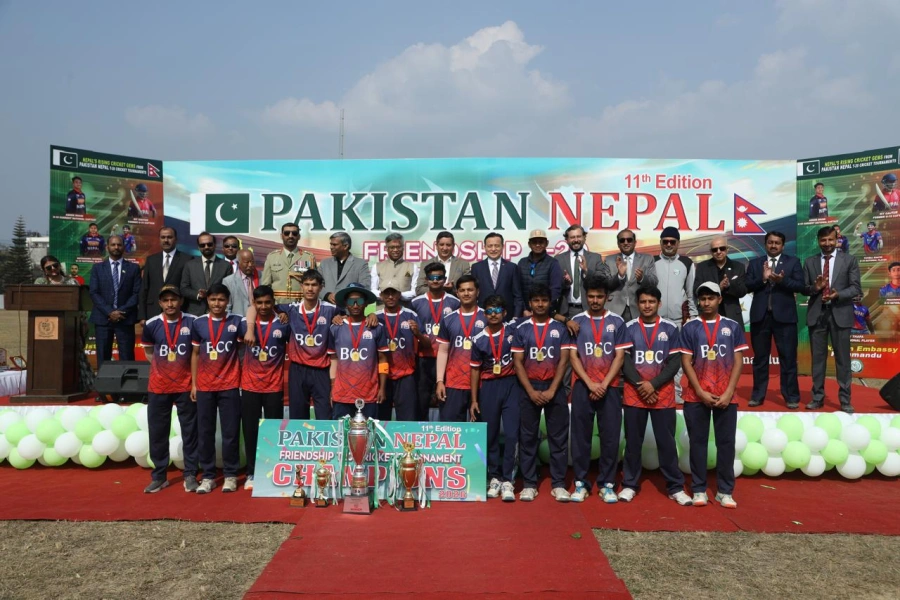Of late, there are a lot of businesses in Nepal manufacturing products that are not only of good quality and match international standards but are reminiscent of our culture and give back to the society as well, be it in terms of empowering women or providing employment opportunities to local farmers, artisans, and craftsmen. These businesses are slowly changing the way locals and foreigners alike view the tag ‘Made in Nepal’. The Week’s Ashma Chhetri & Anweiti Upadhyay find out more about five such businesses that are working to make us rethink our consumerism habits in ways more than one.
Ekadesma: Tales of Nepali Craft
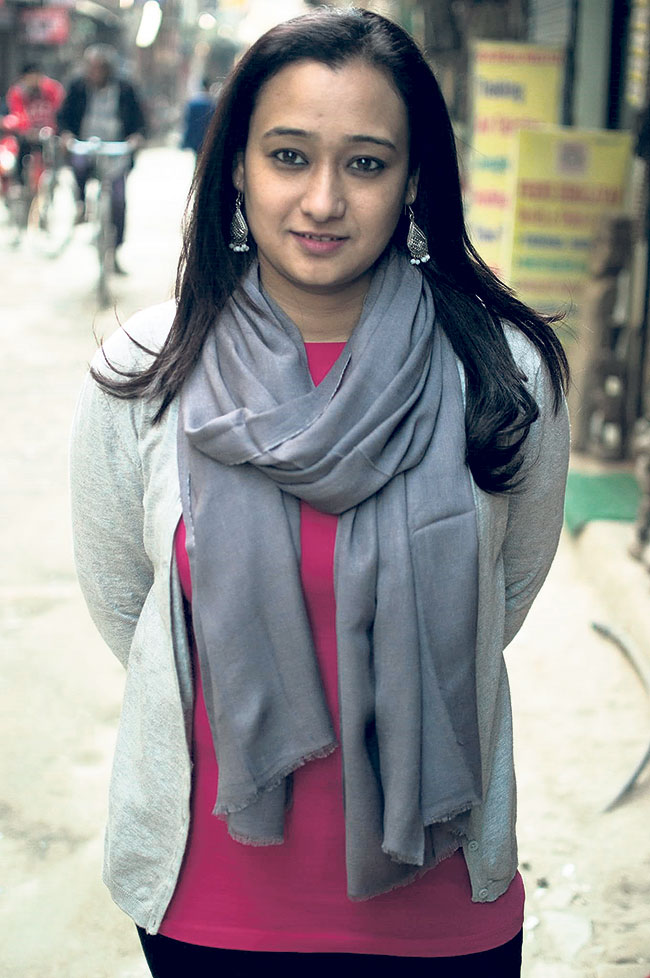 Ekadesma, what started as a quaint little shop, is now certainly more popular in comparison to other various clothing stores in Nepal. A clothing brand of Kathmandu that makes all their products in Nepal itself, Ekadesma uses skills of under privileged women to transform locally available resources such as cotton, hemp and bamboo into a brand new cotton T-shirts, shirts, tops, jackets, dresses, home accessories, and many more.
Ekadesma, what started as a quaint little shop, is now certainly more popular in comparison to other various clothing stores in Nepal. A clothing brand of Kathmandu that makes all their products in Nepal itself, Ekadesma uses skills of under privileged women to transform locally available resources such as cotton, hemp and bamboo into a brand new cotton T-shirts, shirts, tops, jackets, dresses, home accessories, and many more.
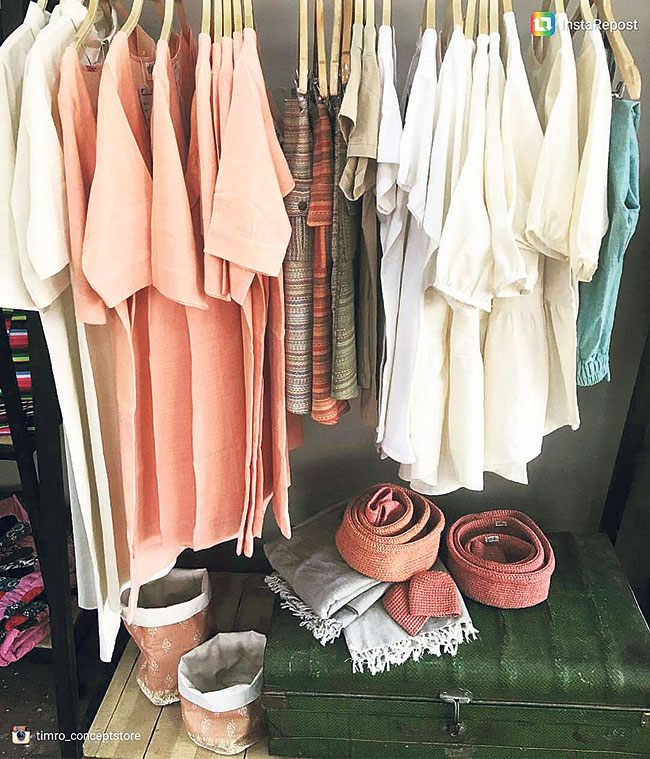 “All our designs have different thoughts and are handmade with love,” says Anuza Rajbhandari further adding that this makes people choose Ekadesma rather than other brands manufactured in Nepal.
“All our designs have different thoughts and are handmade with love,” says Anuza Rajbhandari further adding that this makes people choose Ekadesma rather than other brands manufactured in Nepal.
The literal meaning of ‘Ekadesma’ is ‘Once Upon a Time’. Rajbhandari states that they had their own reasons behind choosing this unique name. Every time they create a product, a new story is created too. Regardless of whether the story is about the troubles they went through while readying the item or about the satisfaction they get after finishing a piece of work, they trust that with the sale of those items the unique story is conveyed to the clients. It is because of this that ‘Ekadesma’ became the permanent name of store.
Along with principle objective of providing artistic designs that will keep you in style and comfort, Ekadesma is also trying its best to create income-generating platforms for victims of the earthquakes of 2015. “We believe that it is not only the government’s job to rebuild the nation. Everybody needs to do their part to better the state of the victims and rise as a nation,” says Rajbhandari
“So being a clothing brand, we started organizing workshops where women are trained on quality stitching,” she adds explaining that this little step by Ekadesma has helped several women generate extra income and help their families.
The prices of goods at Ekadesma range between Rs 300 to Rs 6000. You can also buy their products at their outlet in Thamel, Kathmandu or at Timro Concept Store in Jhamsikhel, Lalitpur. Be it their design or the quality they provide, Rajbhandari guarantees that their customers will never have to compromise.
Himalayan Hammock
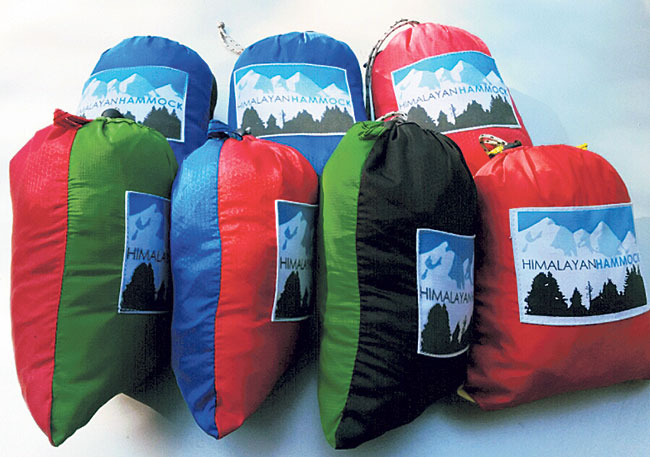
After the pressure of Hindu Jagran Nepal, 'No Barata Please' ma...

Tired of carrying heavy hammock and tent setups for outdoor tours? Then you should definitely consider Himalayan Hammock as an option. It specializes in making travel hammocks and trap shelters that weight only 300 to 400 grams. Made from handpicked local and imported raw materials from Korea and France, Himalayan Hammock is a multi-usable product that is especially designed to fulfilling your needs of adventure. One can use this product as a hammock for resting or as a temporary tent for shelter.
“Though the raw materials are assimilated abroad, the final product is manufactured by master craftsmen here in Nepal itself,” says Yelamber Singh Adhikari, founder of Himalayan Hammock. He further adds that his product lets people fully enjoy the trails and get dirty with reckless abandon. Hammocks from Himalayan Hammocks are not just ultra light but are also bright in color. The bright color works for easy spotting and identification that can be used for rescue operations if one gets lost in trails. One can order hammocks via their official website or through their Facebook and Instagram page. The price of a hammock ranges from Rs 5000 to Rs 6500.
However, it’s not just that Himalayan Hammock is simplifying your trekking and relaxing needs, it’s also contributing to sustainable development of the nation. Hammock for Happiness was one of the projects they initiated and successfully completed for this. The project was initiated with the goal of providing sound sleep to everybody. Under this, Himalayan Hammock provided mosquito net compatible Hammocks to people living in the Southern part of Nepal.
However, after the devastating earthquakes of 2015, instead of providing those compatible hammocks, they started helping the community by focusing on horticulture and agriculture to generate extra income. These incomes will be used in rebuilding the communities. Himalayan Hammock also repairs or recycles old hammocks to make waterproof sheets that they provide to people who are still living without proper shelter post the earthquake.
“If you own an old hammock, instead of throwing it away give it to us and we’ll reuse it,” says Adhikari adding that they want to be known as a business that gives back to the society they operate in.
For this reason, they are also currently working on a new concept where they will be raising awareness among individuals about the importance of nature. “We know that youngsters today are gradually getting disconnected with nature. They are more involved in virtual world than the real word,” says Adhikari. Thus, under this new project Himalayan Hammocks will be creating a cottage house and farmlands for people to work and rest. Likewise, they will also be organizing nature related campaigns such as plantation for school children. This, Adhikari says, will go a long way in educating the future generation about respecting the mother earth.
Allare
 It all started only a year ago when Kreeti Shakya thought of raising awareness about Nepali iconography, culture, and rituals. She also wanted to transcend traditional Nepali art into modern mediums. Thus ‘Allare’ was born.
It all started only a year ago when Kreeti Shakya thought of raising awareness about Nepali iconography, culture, and rituals. She also wanted to transcend traditional Nepali art into modern mediums. Thus ‘Allare’ was born.
Allare is a Nepali brand that specializes in products such as bamboo bags, bottle openers, USB drives, memory games, bookmarks etc. The unique thing about Allare is that its entire line of products reflects craftsmanship, detailing, and significance of heritages of Nepal. The intricate designs made on each product have their own unique tales to tell.
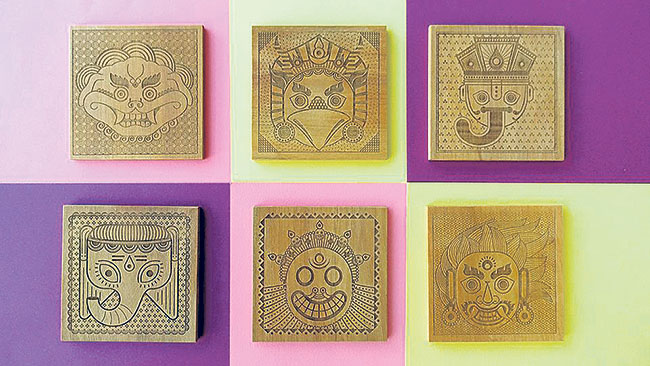 Allare gets its raw materials from community forests as well as India. The final products are crafted by some exceptionally talented local workers. “Our artisans are highly experienced in preparing these products. It’s because of them Allare delivers best quality products that are completely handmade,” says Shakya adding that good quality is the first and foremost priority.
Allare gets its raw materials from community forests as well as India. The final products are crafted by some exceptionally talented local workers. “Our artisans are highly experienced in preparing these products. It’s because of them Allare delivers best quality products that are completely handmade,” says Shakya adding that good quality is the first and foremost priority.
The word ‘Allare’ refers to a wanderer who travels and gathers knowledge from everywhere. The company, standing true to its name goes, conducts detailed research before making any products. They dig into history be it through books or people, and interview locals and gather their views as well. It’s only after such extensive research that they start working on a particular design. Shakya says there’s a lot that happens before launching a product in the market.
And local as well as foreign consumers are definitely appreciating their efforts despite the price range going as high as Rs 20000 for some products. Shakya says that a lot of items sell as souvenirs from Nepal. Eastern iconography made using western technology and mediums are currently in demand and Shakya mentions that they even customize items to suit a client’s needs. “You can use Allare for corporate gifting solutions,” she says adding that a lot of thought and preparation goes into each product so you can be sure that each item will be top notch.
Hatti Hatti
 In 2014, David Geiser, a Swedish teacher, and Charlotte Mellkvist, a Swedish textile industry employee arrived in Nepal to volunteer at an event organized by SAATH. During their stay, the condition of many Nepali women tugged at their heartstrings and that’s when they decided to establish Hatti Hatti, a social enterprise that operates on the concept ‘sustainable eco fashion’. They advertize local (Made in Nepal) products globally while promoting women empowerment and sustainable development.
In 2014, David Geiser, a Swedish teacher, and Charlotte Mellkvist, a Swedish textile industry employee arrived in Nepal to volunteer at an event organized by SAATH. During their stay, the condition of many Nepali women tugged at their heartstrings and that’s when they decided to establish Hatti Hatti, a social enterprise that operates on the concept ‘sustainable eco fashion’. They advertize local (Made in Nepal) products globally while promoting women empowerment and sustainable development.
“Hatti translates to elephants in English and the organization works just like a herd of elephants does. Elephants are humble and hardworking creatures who work in a group. They support and uplift and look after one another. That is exactly what we are aiming for. Our name translates into our working as a group,” says Rijesh Rajkarnikar, marketing director and HR manager at Hatti Hatti, explaining the unconventional and unique name of the organization.
 According to their website (hattihatti.org), Hatti Hatti focuses on empowering women from marginalized communities in Nepal. The women are given education and practical training to give them a chance to become skilled tailors, creative entrepreneurs, and independent individuals. And that precisely sums up what they do. They gather women from marginalized communities, provide basic education, train them on tailoring and expose them to different employment opportunities. The trainees are usually uneducated and reside outside the capital.
According to their website (hattihatti.org), Hatti Hatti focuses on empowering women from marginalized communities in Nepal. The women are given education and practical training to give them a chance to become skilled tailors, creative entrepreneurs, and independent individuals. And that precisely sums up what they do. They gather women from marginalized communities, provide basic education, train them on tailoring and expose them to different employment opportunities. The trainees are usually uneducated and reside outside the capital.
Their first venture into business was a stall at the Farmers Market in 1905 restaurant where they sold Swedish chocolate balls which helped raise a good initial funding for their organization. Gradually they moved on to making bags, kimonos, and various other articles of clothing.
Rajkarnikar shares that Hatti Hatti is also an environment friendly establishment. They firmly believe in recycling products in order to minimize over consumption of resources and preserve and protect the environment from pollution caused by excessive human wastage. All of their products are crafted from recycled fabrics.
“Most of our purchases are international exports. We have not been able to appeal to the local (Nepali) market as much as we would like to,” says Rajkarnikar adding that he suspects it has something to with Nepali community’s dislike towards recycled or, as we (Nepali) usually refer to it, second hand clothes.
However, the international appeal of garments made at Hatti Hatti can’t be denied and they currently seel their products online on different websites and deliver all over the world. For local consumers, they have their products on display at Timro Concept Store in Jhamsikhel, Lalitpur.
Karma Coffee
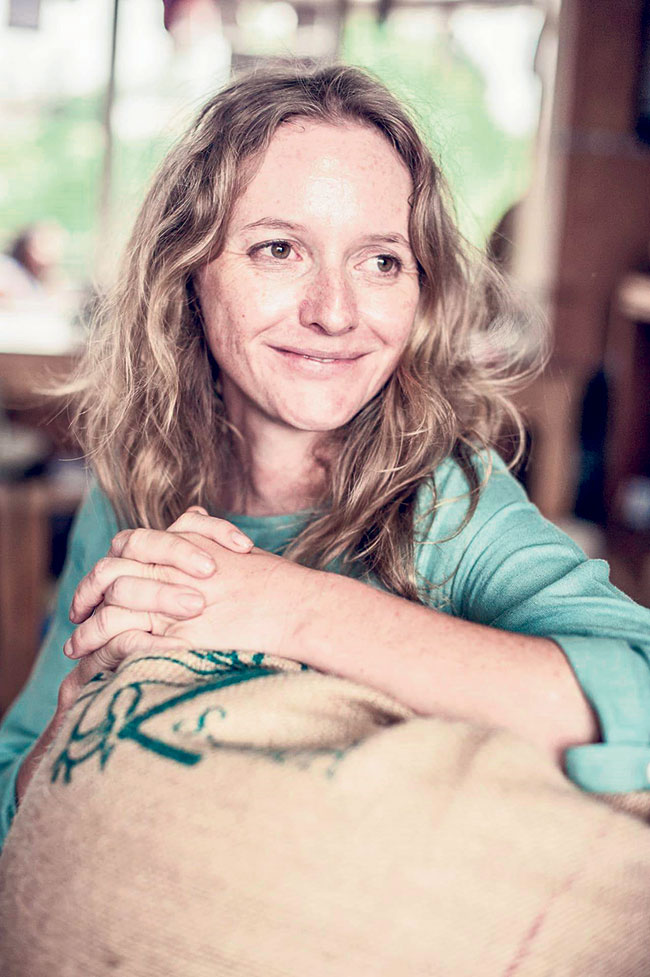 Located in a small side-alley at Jhamsikhel, Karma Coffee is the heart of the creative hub ‘Gyan mandala’. Here you can enjoy a nice cup of good quality hand brewed coffee as the beans are handpicked and then hand sorted as well. These beans are directly transported from small cooperatives of Kaski, Ilam, Lamjung, Gorkha, Sindhupalchowk and Okaldungha.
Located in a small side-alley at Jhamsikhel, Karma Coffee is the heart of the creative hub ‘Gyan mandala’. Here you can enjoy a nice cup of good quality hand brewed coffee as the beans are handpicked and then hand sorted as well. These beans are directly transported from small cooperatives of Kaski, Ilam, Lamjung, Gorkha, Sindhupalchowk and Okaldungha.
“We believe that Nepal has many underrated resources. Not only the resources, but even skilled local people lack the platforms to demonstrate their capability,” says Birgit Lienhart, owner of Karma Coffee further adding that Karma Coffee was initiated to promote these valuable goods in the market they deserve.
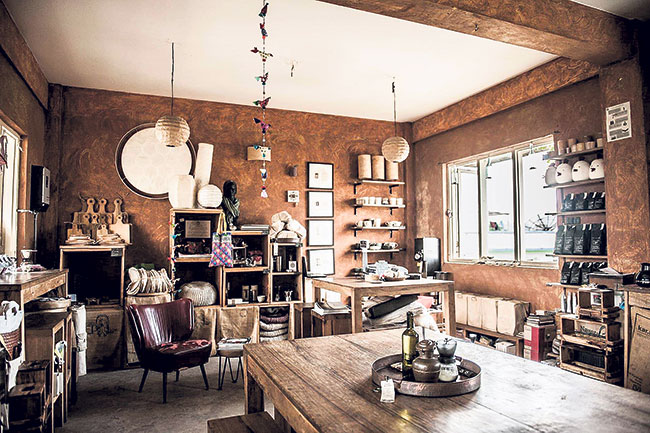 The most peculiar thing about Karma Coffee is that they do not charge any fixed rates to their customers. One can pay what he/she thinks is worthy of the coffee after tasting it. Here Lienhart is quick to clarify that Karma Coffee does not offer almost free coffee because it is not good quality coffee. Rather, products of Karma Coffees are made up of beans that are cupped and rated more than 80 points by certified Q-Graders. This means that their coffee falls in the special and expert league.
The most peculiar thing about Karma Coffee is that they do not charge any fixed rates to their customers. One can pay what he/she thinks is worthy of the coffee after tasting it. Here Lienhart is quick to clarify that Karma Coffee does not offer almost free coffee because it is not good quality coffee. Rather, products of Karma Coffees are made up of beans that are cupped and rated more than 80 points by certified Q-Graders. This means that their coffee falls in the special and expert league.
Another good thing about Karma Coffee is that nothing goes to waste. Preserving the environment is one of their concerns and Karma Coffee uses the coffee wastes to produce recycled goods that can be used as cool gifts and accessories like face packs, scrubs, and paper lamps or boxes etc. These products are solely made by Nepali artisans and craftsmen. The prices of these goods vary from Rs 100 to Rs 4000.
Karma Coffee was initiated for a good cause and their only goal is to turn this good into the best. For this they are also involved in many other social projects. “I personally love working with woods and carvings. Due to this, lately we have been training women of Kokhana in carpentry and interior designing,” says Lienhart. She believes that this will help these women earn a living and becoming independent.



